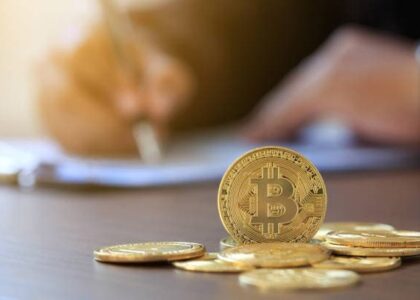CFD trading platforms have become increasingly popular among traders due to their flexibility and the ability to speculate on the price movements of a wide range of financial instruments. When selecting a CFD trading platform, it’s crucial to consider various features and benefits that can enhance your trading experience. In this article, we will delve into the key aspects that differentiate CFD platforms and highlight the benefits of choosing the right one for your trading needs.
Ease of Use and Interface Design
The first thing that strikes a trader when they log into a CFD trading platform (In Taiwan, it is called “cfd 交易平台“) is its user interface. An intuitive and clean design is essential for quick navigation and efficient trading. A well-designed interface should provide easy access to essential tools and features without overwhelming the user with unnecessary information. Platforms that offer customizable layouts allow traders to tailor the interface to their preferences, making it easier to focus on the most relevant data.
Range of Tradable Instruments
One of the main benefits of CFD trading is the ability to trade a diverse range of financial instruments, including stocks, indices, commodities, and currencies. A robust CFD platform should offer a wide selection of these instruments across global markets. This variety allows traders to diversify their portfolios and take advantage of opportunities in different sectors. It’s important to check if the platform supports the specific assets you are interested in trading.
Leverage and Margin Requirements
Leverage is a double-edged sword in CFD trading; it can amplify both gains and losses. Understanding the leverage and margin requirements of a platform is crucial for managing risk effectively. Higher leverage allows for larger positions with a smaller initial investment, but it also increases the potential for significant losses. A good CFD platform should provide clear information on leverage ratios and how margin calls work to help traders make informed decisions.
Execution Speed and Reliability
In fast-paced markets, execution speed can be the difference between a profitable trade and a loss. A reliable CFD trading platform (In Taiwan, it is called “cfd平台“) ensures that orders are executed quickly and accurately. This is particularly important during volatile market conditions when prices can change rapidly. Traders should look for platforms that offer instant execution and have a history of minimal slippage and downtime.
Spreads and Commissions
Costs are a significant factor in CFD trading, and understanding the spreads and commissions charged by a platform is essential. Spreads are the difference between the buy and sell prices, and a tighter spread means lower trading costs. However, some platforms may offer tight spreads but compensate by charging higher commissions. It’s crucial to find a balance between the two to minimize overall trading costs.
Educational Resources and Support
For both new and experienced traders, access to educational resources can be invaluable. A top CFD platform should offer a range of learning materials, from beginner guides to advanced strategies. Additionally, responsive customer support is essential, especially when dealing with technical issues or trading queries. Look for platforms that provide 24/5 support through multiple channels, including live chat, email, and phone.
Regulation and Security
The security of your funds and personal information is paramount. A regulated CFD platform is more likely to adhere to strict financial standards and offer better protection for clients. Regulation by reputable bodies such as the FCA in the UK or ASIC in Australia ensures that the platform operates transparently and maintains adequate capitalization. It’s also important to check if the platform uses encryption and other security measures to protect your data.
Advanced Trading Tools
Advanced trading tools can give traders an edge in the market. Look for a CFD platform that offers tools like charting software with a variety of technical indicators, automated trading capabilities through APIs, and risk management tools such as stop-loss and take-profit orders. These tools can help traders analyze market trends, execute strategies, and manage risk more effectively.
Mobile Trading and Platform Accessibility
The ability to trade on the go is a significant advantage in today’s fast-paced world. A good CFD platform should offer a mobile app that mirrors the functionality of the desktop version, allowing traders to monitor markets, place trades, and manage their accounts from anywhere. Additionally, the platform should be accessible on various devices and browsers without compatibility issues.
Conclusion
Choosing the right CFD trading platform is a critical decision that can impact your trading success. By considering the ease of use, range of tradable instruments, leverage and margin requirements, execution speed, spreads and commissions, educational resources, regulation, advanced trading tools, and mobile trading capabilities, you can find a platform that aligns with your trading style and goals. Always remember to do your due diligence and choose a platform that offers a comprehensive suite of features to support your trading journey.




